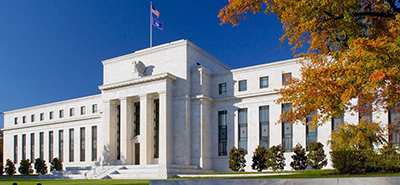
FOMC Rate Pause Remains; MBA Economist Weighs In

The Federal Reserve’s Federal Open Market Committee left interest rates unchanged on Wednesday.
MBA Senior Vice President and Chief Economist Mike Fratantoni said the Federal Open Market Committee’s projections showed a weaker outlook for economic growth and the job market but somewhat higher inflation for the near term compared to their forecasts in December. “The statement indicates more concern about weaker economic growth, but its outlook for the federal funds target is unchanged, and it made no change to the rate target at this meeting. The FOMC is holding steady amidst substantial uncertainty regarding the outlook,” he noted.
Fratantoni said the most significant change to policy at this meeting was a decision to markedly slow the pace of quantitative tightening beginning in April, dropping the pace of Treasury runoff from $25 billion to $5 billion per month. The MBS cap of $35 billion per month remains the same. A slower pace of QT will prevent further liquidity strains in financial markets.
“In the near term, we expect mortgage rates to remain in a fairly narrow range, between 6.5 and 7%, which should support the spring housing market,” Fratantoni said.
The full FOMC statement reads:
Recent indicators suggest that economic activity has continued to expand at a solid pace. The unemployment rate has stabilized at a low level in recent months, and labor market conditions remain solid. Inflation remains somewhat elevated.
The Committee seeks to achieve maximum employment and inflation at the rate of 2 percent over the longer run. Uncertainty around the economic outlook has increased. The Committee is attentive to the risks to both sides of its dual mandate.
In support of its goals, the Committee decided to maintain the target range for the federal funds rate at 4-1/4 to 4-1/2 percent. In considering the extent and timing of additional adjustments to the target range for the federal funds rate, the Committee will carefully assess incoming data, the evolving outlook, and the balance of risks. The Committee will continue reducing its holdings of Treasury securities and agency debt and agency mortgage‑backed securities. Beginning in April, the Committee will slow the pace of decline of its securities holdings by reducing the monthly redemption cap on Treasury securities from $25 billion to $5 billion. The Committee will maintain the monthly redemption cap on agency debt and agency mortgage-backed securities at $35 billion. The Committee is strongly committed to supporting maximum employment and returning inflation to its 2 percent objective.
In assessing the appropriate stance of monetary policy, the Committee will continue to monitor the implications of incoming information for the economic outlook. The Committee would be prepared to adjust the stance of monetary policy as appropriate if risks emerge that could impede the attainment of the Committee’s goals. The Committee’s assessments will take into account a wide range of information, including readings on labor market conditions, inflation pressures and inflation expectations, and financial and international developments.
Voting for the monetary policy action were Jerome H. Powell, Chair; John C. Williams, Vice Chair; Michael S. Barr; Michelle W. Bowman; Susan M. Collins; Lisa D. Cook; Austan D. Goolsbee; Philip N. Jefferson; Adriana D. Kugler; Alberto G. Musalem; and Jeffrey R. Schmid. Voting against this action was Christopher J. Waller, who supported no change for the federal funds target range but preferred to continue the current pace of decline in securities holdings.
